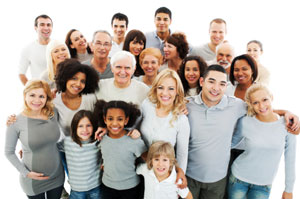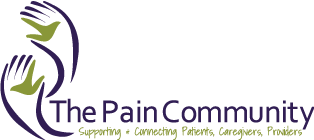 In our world today the term caregiver comes to mind when someone mentions dementia, Alzheimer’s, cancer, ALS, stroke and other serious medical conditions. Many people are familiar with the story of a son or daughter who takes over the care of their aged parent(s). People see them as caregivers for their family members. This is one type of caregiver that people recognize easily and it is unfortunate but many relate too.
In our world today the term caregiver comes to mind when someone mentions dementia, Alzheimer’s, cancer, ALS, stroke and other serious medical conditions. Many people are familiar with the story of a son or daughter who takes over the care of their aged parent(s). People see them as caregivers for their family members. This is one type of caregiver that people recognize easily and it is unfortunate but many relate too.
Wikipedia defines caregiving as “an unpaid or paid person who helps another individual with an impairment with his or her activities of daily living” Our medical professionals, our doctors, nurses and certified nurse assistants (CNAs), are considered caregivers; they work very hard offering their skills and services to one of the hardest jobs on earth. Can you think of other types of caregivers? Sure you can when you really think about it. They can include bus drivers, daycare workers and teachers to name just a few.
There is one type of caregiver that is missing from most lists. They are the caregivers for people living with pain–husbands, wives, children, significant others, life partners and beloved friends and neighbors. They do the same things that all the other caregivers do but many times not mentioned in an article about caregivers. As one of those caregivers, I feel like we are the forgotten ones.
Why are we forgotten? You see if we tell someone that we are a caregiver for someone living with chronic pain instantly you see the light bulb go off above the head. You see the wheels turning quickly and then it clicks and they ultimately say something like, “aren’t you concerned that your wife, sister, mother, daughter etc., will become addicted to the medications? The conversation then takes that turn where they begin to talk and it is plain to see that they are uninformed or falsely informed about addiction and people who live with pain and their caregivers. How sad is it that intelligent people go to addiction first? What gives people the right to judge others who are caregivers and those who live in pain?
It is surprising in this age of technology where you can use any search engine (like Bing, Yahoo, Google) in an instant that people still repeat untrue statements regarding pain care because they heard it on the news, on a television documentary or read one of the many articles that are bias against people living with pain and are one-sided.
We, the caregivers closest to home, are sometimes the only person that someone living with pain can depend on to support or provide the care they need each day. For many of us, the type of care that takes shape is more emotional than physical caregiving. For many of us, the job of caregiver happens when those we care for first develop the pain. There isn’t a job interview, and no need for a resume. Our presence and our acceptance offers the support that opens the door to living a fulfilled life and helps the one we love from giving up on life. We are there to lend that shoulder to cry on when pain flairs take over every thought and movement. We are there as a pain buddy who stands beside our loved one during medical visits and public outings, and bears witness to how pain engulfs every aspect of life when necessary.
We can validate the personal loss of the person they once were which sometimes sends them in a downhill, out of control spiral into sadness and depression. We are needed to be there, to listen, to cry with them, to hold a hand or offer a gentle hug. Yes, indeed, we are caregivers!
No matter what kind of caregiver you are, it is a hard job! It can be emotionally and physically draining. For many of us, we also have full time jobs outside the home. We often work anywhere from 8-12 hour shifts at our paid job then come home and put on our caregiver uniform. Our chores may seem endless—make dinner, do the dishes, clean house, do laundry, care for the kids and pets, take out the garbage, mow the yard, shovel snow and the list goes on and on.
So, who is a caregiver, anyway? Do you recognize yourself or someone you know as you read this? If you do, the next time you are having a conversation with a co-worker, friend or a stranger and they ask what you do on your off time. Stand up tall and straight and tell them, “I am a caregiver for someone I care about who lives with pain.” Hold your head up high and be proud of what you are doing. Without us, the caregivers for people with pain, those endeared to us would likely have no one to be there for them. They would be forced to face their pain journey alone.
Salute to caregivers; we rock!

That is right, Jim. Caregivers do ROCK!!